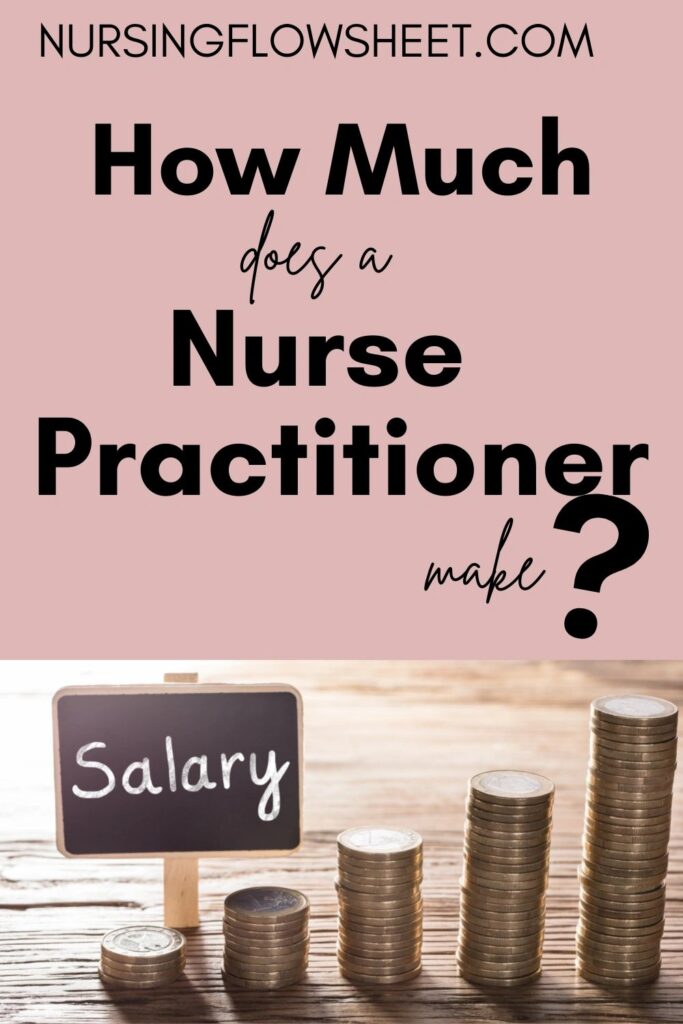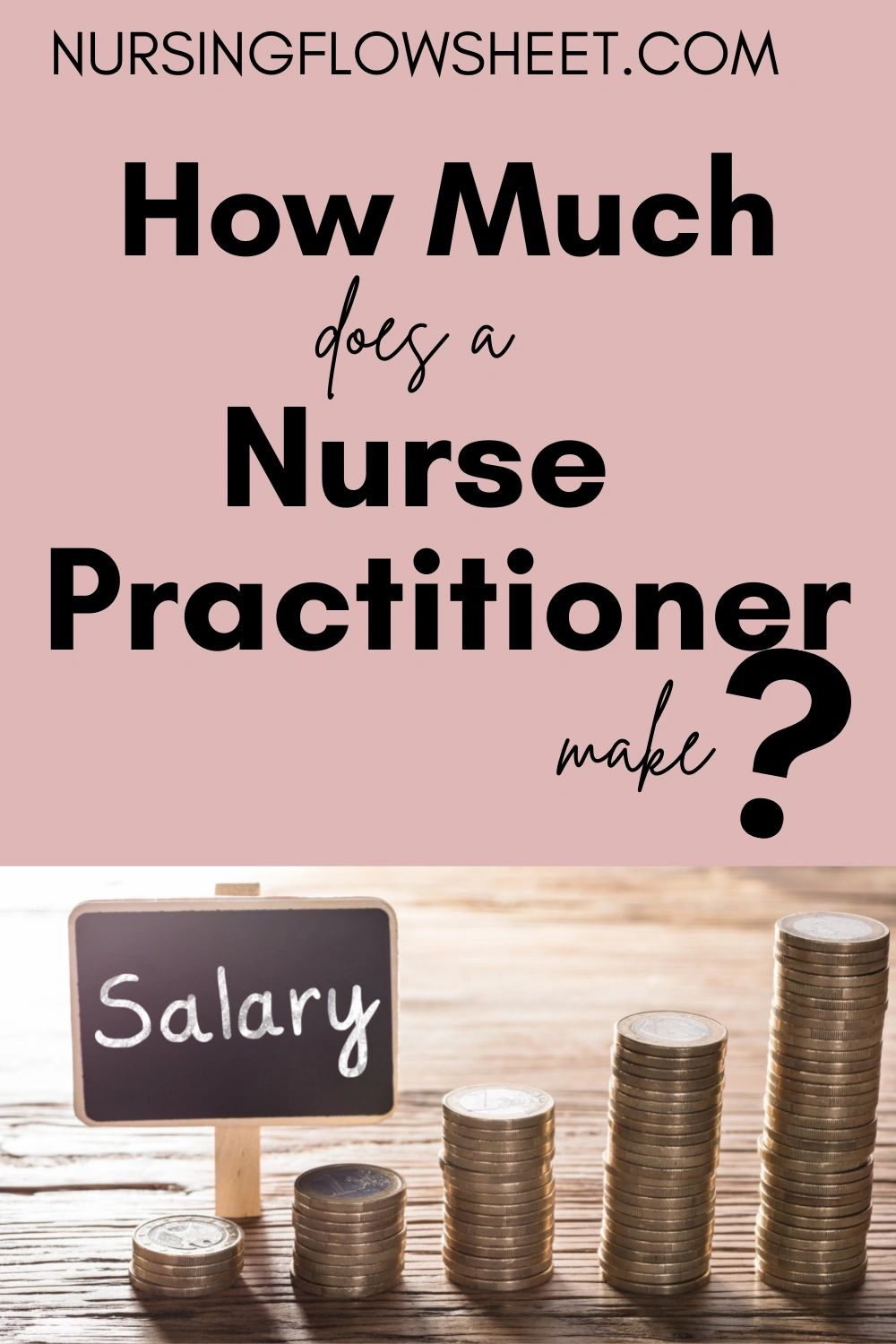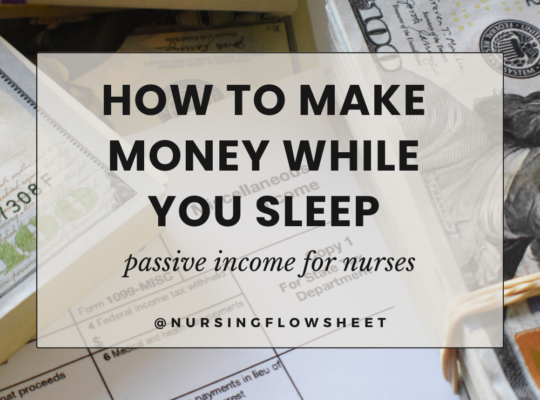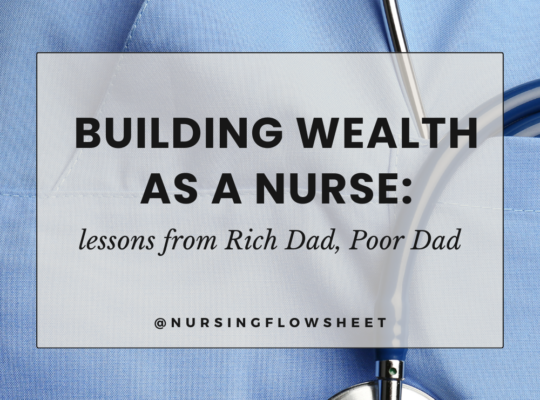If you are wondering how much is a nurse practitioner salary, there are five factors that can affect how much the pay could be. When I graduated college as a new grad nurse, I was very happy with my pay. This is coming from somebody who worked minimum wage while attending a university and at that time I was only getting paid $8/ hour.
When I applied to a Nurse Practitioner Program, I honestly only wanted a better work environment, to advance my nursing career and just have a better job satisfaction in this field.

However, for most people working towards becoming a Nurse Practitioner, the thought of an increased salary probably crossed their minds. After looking at my grad student loans, I made sure that what I was making as a Nurse Practitioner is more than when I was a registered nurse. While money should not be the main reason for choosing a career, it definitely is an important factor to consider.
Working as a NP for over 5 years now, I can kind of give you an idea of how much this profession makes. (This Post is updated Feb 2024)
Five Factors that Determine Nurse Practitioner Salary
Just as the same as being a registered nurse salary, there are many variables that will determine your salary as a Nurse Practitioner.
1. Experience
As in all professions, experience is everything. The more experience you have, the more value you bring to the company ~ or at least that’s what they perceive.
According to the American Association of Nurse Practitioners (AANP) Nurse Practitioner Compensation Survey released in 2019, NPs with five or fewer years of experience still earned a base salary of $104,000. According to this survey, NP salary tends to rise along with experience. Those with 6-10 years experience earn $110,000.
Salary levels stayed steady for NPs in their second decade of experience. Salaries for NPs with between 11 and 20 years of experience averaged $118,000, while the most experienced NPs—those with more than 20 years—earned even more, reporting an average of $121,000.
In my experience, my RN experience definitely did not count as experience when I started as a Nurse Practitioner (for obvious reasons). So no matter how long you have been a RN, when it comes to pay, It wouldn’t really matter as much.
2. Clinical Setting or Specialty
Nurse Practitioner Salary is also dependent on what specialty you choose. Hospital settings with less desirable hours, higher stress level tend to pay more than outpatient clinics. Each clinical setting or specialty of course has its pros and cons. Knowing which clinical setting you want to work in will definitely help you estimate how much you can make as an NP.
The AANP Compensation Survey lists the annual base salary for a number of areas:
- Psychiatric/mental health (adult) nurse practitioner: $125,000
- Neonatal nurse practitioner: $122,500
- Acute care nurse practitioner: $120,000
- Psychiatric/mental health (family) nurse practitioner: $119,000
- Oncology nurse practitioner: $119,000
3. Location
In my opinion, location is the most important factor to consider when determining your NP Salary.
According to Becker’s Hospital Review, Nurse practitioners have the highest average annual salary in California , according to the most recent U.S. Bureau of Labor Statistics data.
Here are the 10 states where nurse practitioners have the highest annual average salary based on the data:
1. California: $138,660
2. Washington: $126,920
3. Hawaii: $124,000
4. New Jersey: $123,810
5. Minnesota: $122,850
6. New York: $122,550
7. Massachusetts: $122,240
8. Wyoming: $118,110
9. Nevada: $115,970
10. Alaska: $115,890
For the full state-by-state average compensation for nurse practitioners, click here.
You have to keep in mind that the location of your work also determine your cost of living. My friend who is a Nurse Practitioner in the Bay Area (San Francisco area) makes almost double of what I am making, however, mortgage rates there is way higher than where I live.
4. Contract Negotiations
Whether you’re a new grad nurse practitioner or a seasoned NP, you have to put an effort in learning how to negotiate your contract. Bargaining for salary, compensation and benefits is a very important aspect in achieving your career goals in this profession.
The type of employee position you are applying to can also affect your pay. Full-time employees have standard pay, but they also have many benefits such as medical/vision/dental insurance, CME allowance, retirement accounts like a 401K, pension etc. Per-diem employees, even 1099 (contract)employees tend to make more per hour but the benefits are sub-par.
5. Union Setting
The last variable is not a big factor, but if you work in a big hospital, being a part of a union affects your salary too. Nurse Practitioners and Nurses in a facility with a union or collective bargaining unit earn an average of $9,200 more than nurses in a nonunion workplace.
So, How Much do I make as Nurse Practitioner?
My job offer in Northern California when I started as a new grad NP was $110,000/year plus benefits. I started at a primary care clinic. Then I moved to Central California where my family lives and I was offered a job at an urgent care for $130,000/year. I had to negotiate this salary. Now, I work as a specialty nurse in a big teaching hospital and was offered $145,000/year. I work M-T, 10 hour shifts and sometimes on-call for pulmonary consults in the hospital.
Related: Going Back to Nurse Practitioner School, Is it Worth it?
In Conclusion, Nurse Pracititioner Salary depend on various factors including how long you have been a nurse practitioner, where you are practicing and what specialty you are working in, if your hospital has a union or if you are able to negotiate your salary. I hope that the information above is useful in determining how much Nurse Practitioners make. Happy job hunting and always know your worth!
If you are a nurse pracititioner, comment down below where you work, how many years of experience you have and how much you get paid as a nurse practitioner.







